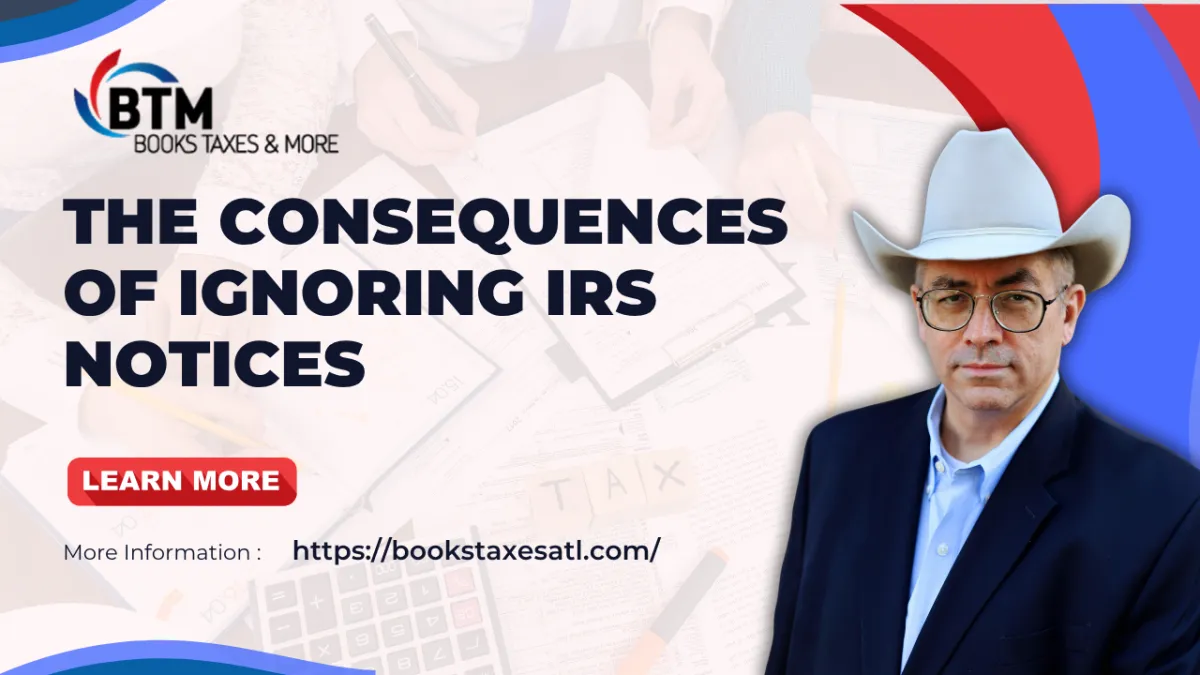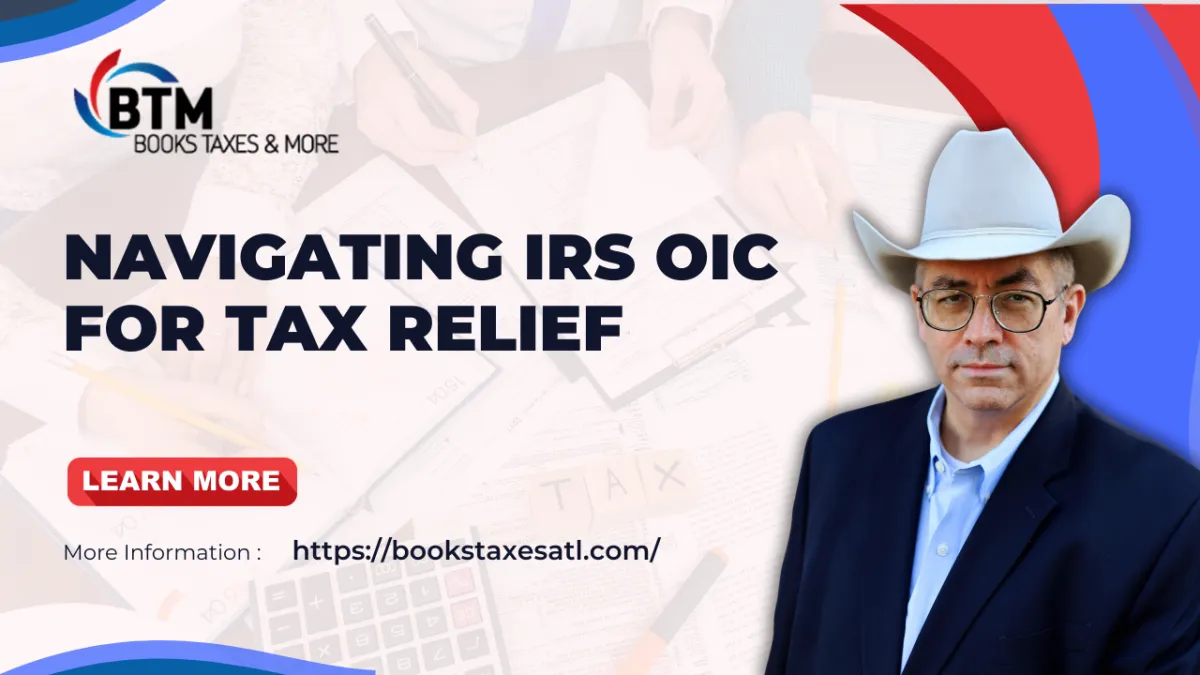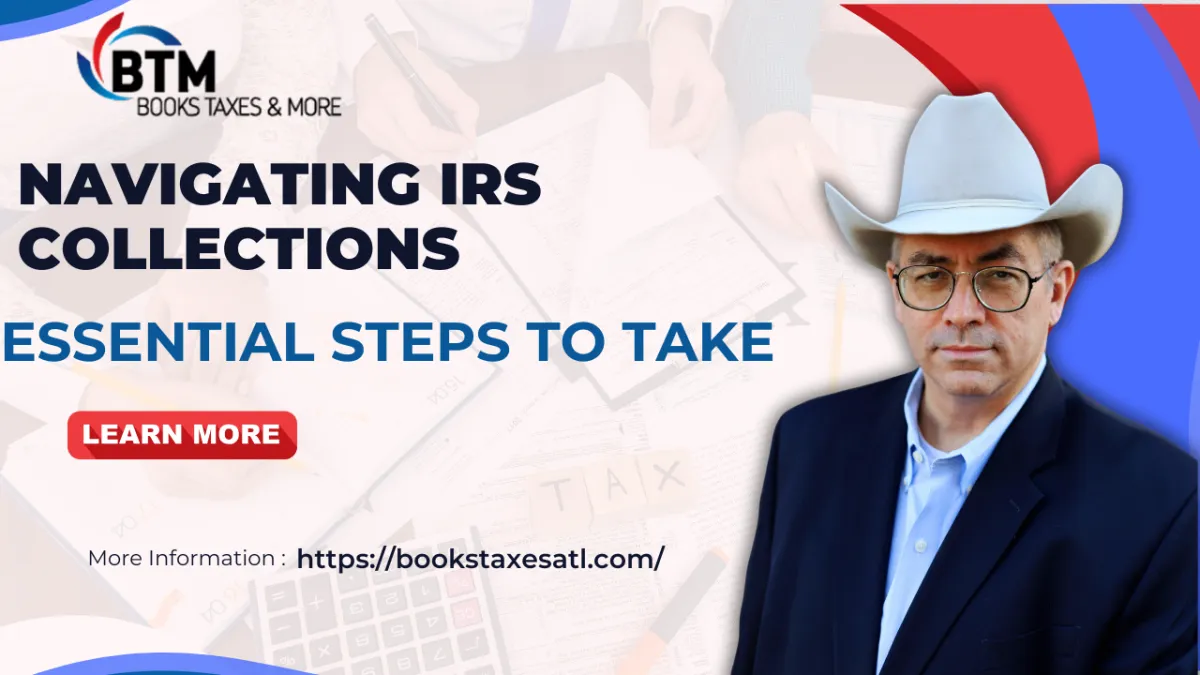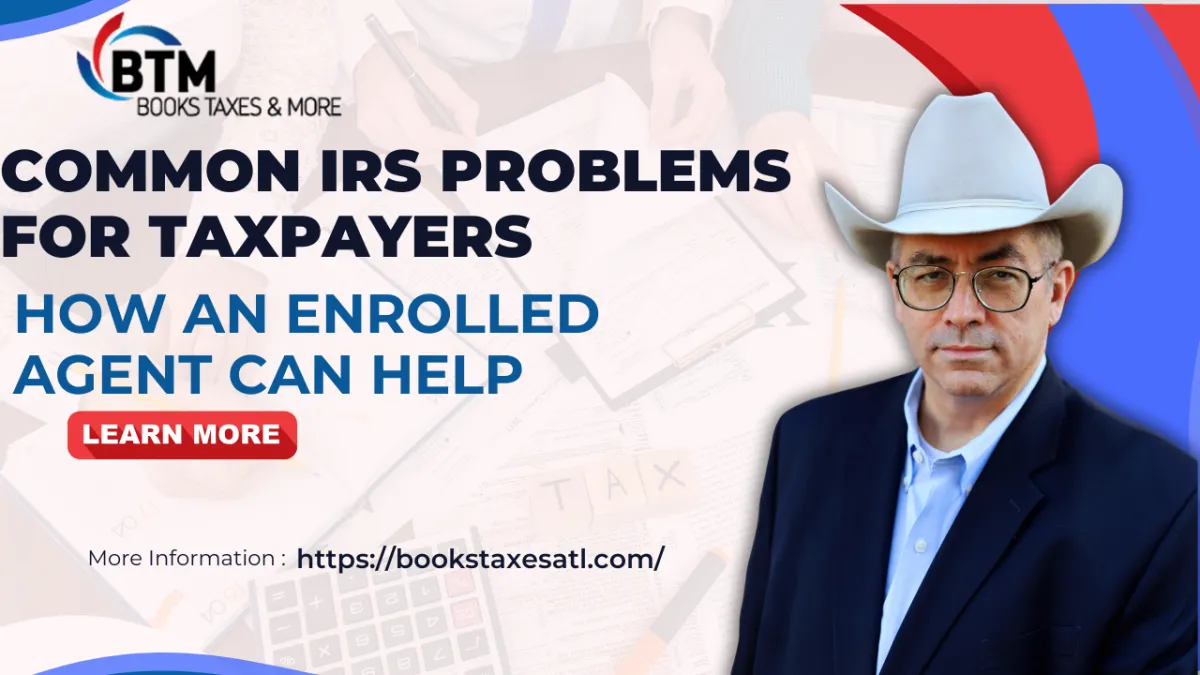The Consequences of Ignoring IRS Letters and Notices
- Ignoring IRS letters can lead to serious outcomes including financial penalties, interest, and legal actions. - Penalties and interest accrue immediately on unpaid taxes, increasing the debt over time. - Failure to respond to IRS proposals like CP2000 within 30 days may result in loss of refunds or tax credits. - Unresolved tax issues can trigger federal tax liens, affecting property and credit, or levies that seize assets such as bank accounts and wages. - The IRS can garnish wages, withholding up to 25% of paychecks, causing financial hardship. - In extreme cases, continued noncompliance may result in criminal charges for tax evasion or fraud. - Taxpayers should carefully read IRS notices and seek professional assistance promptly. - Books, Taxes & More offers expert help to evaluate, respond to IRS correspondence, and represent taxpayers to avoid costly mistakes. - Promptly addressing IRS letters protects assets and prevents escalating financial and legal consequences.




